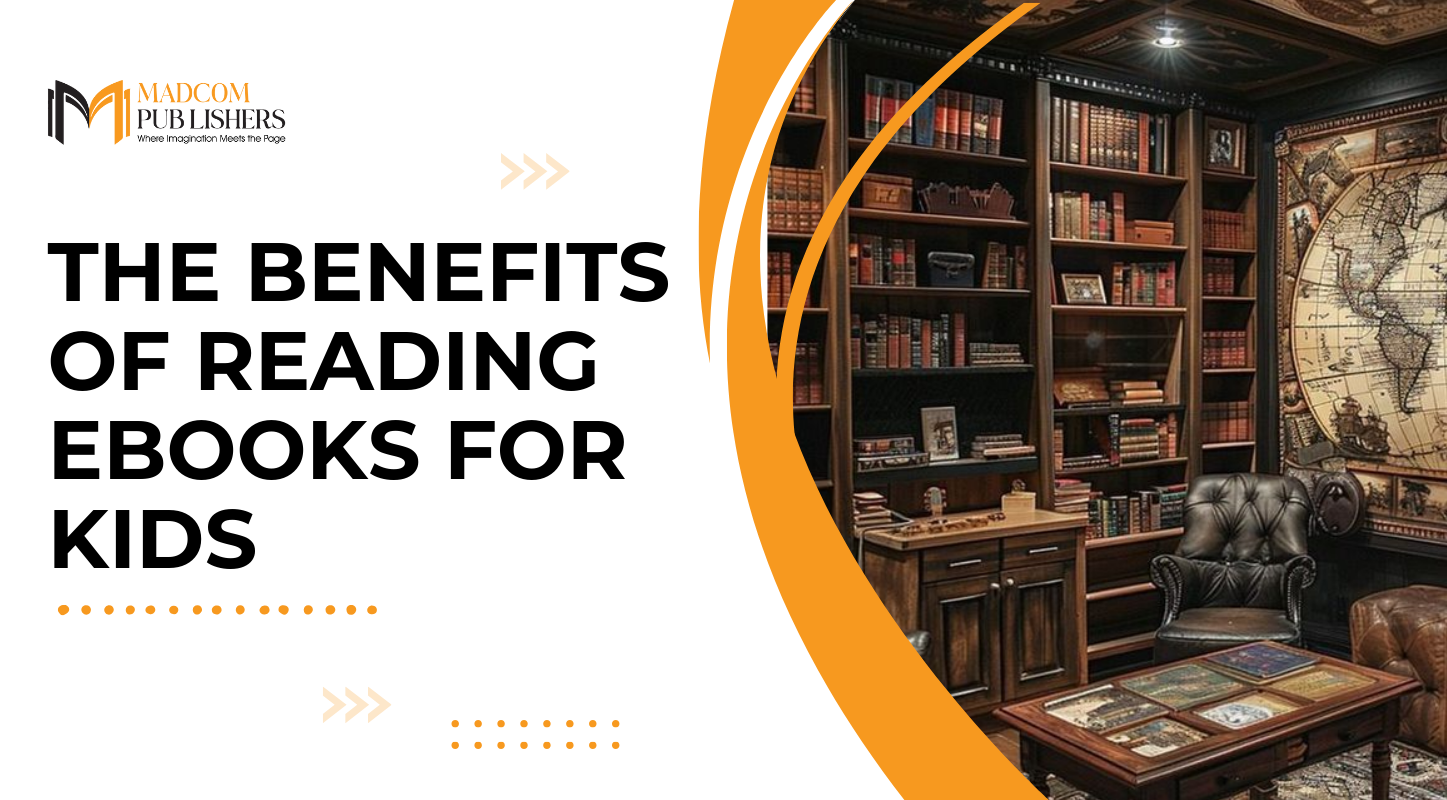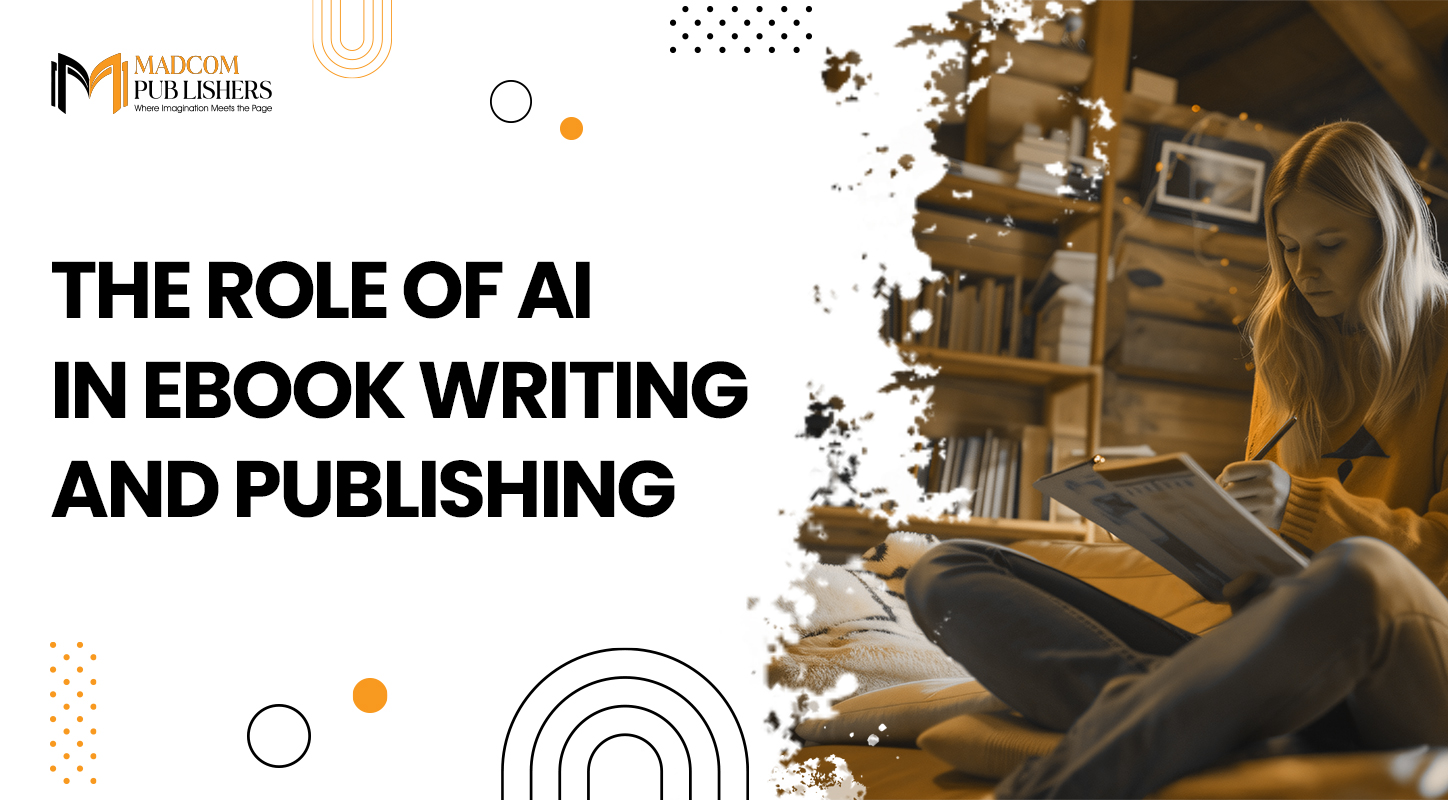
Is ChatGPT a Good Tool to Use for eBook?
In today's digital landscape, eBooks have become a cornerstone of literature, offering readers unparalleled accessibility and convenience. As demand for digital content continues to rise, publishers such as Madcom Publishers are constantly seeking innovative tools to streamline eBook creation processes. One such tool that has gained People have been using ChatGPT to write eBooks. considerable attention is ChatGPT, an advanced language model developed by OpenAI. But does ChatGPT truly serve as a beneficial tool for eBook creation, especially for a company like Madcom Publishers, renowned for its expertise in eBook writing services, eBook ghostwriting, and book cover design?
ChatGPT undoubtedly offers remarkable advantages in terms of efficiency and speed when it comes to generating content for eBooks. Its ability to process vast amounts of text data and produce human-like responses makes it an invaluable resource for authors and publishers alike. Madcom Publishers can leverage ChatGPT's capabilities to generate drafts for chapters, blog posts, promotional materials, and more, thus enhancing the efficiency of their eBook creation process.
However, there exists a notable challenge when relying solely on ChatGPT to write an eBook: the robotic nature of its output. eBooks are not merely about conveying information; they are about crafting an immersive experience that resonates with readers on an emotional level. This is where ChatGPT falls short. Its responses, while grammatically sound, often lack the human touch necessary to evoke genuine emotions in readers.
For Madcom Publishers, whose hallmark is delivering eBooks that not only inform but also engage and captivate readers, depending entirely on ChatGPT for content creation may present a dilemma. While it can expedite the writing process, the resulting content may feel sterile and devoid of the warmth and authenticity that characterize human-authored works.
Moreover, in the realm of eBook ghostwriting, where authors seek assistance in bringing their ideas to life, the use of ChatGPT raises ethical concerns. While it can mimic human writing to some extent, it lacks the ability to grasp context, tone, and nuances essential in ghostwriting. This can lead to inconsistencies in style and voice, ultimately detracting from the coherence of the eBook.
Similarly, while ChatGPT can offer insights and suggestions for book cover design based on text descriptions or keywords, it cannot replace the creative intuition and aesthetic sense of human designers. Crafting an eBook cover that truly stands out requires a level of creativity and artistic flair that ChatGPT simply cannot replicate.
So, where does this leave Madcom Publishers and other companies navigating the eBook creation landscape? While ChatGPT undeniably offers valuable capabilities, it should be viewed as a tool to complement human creativity rather than replace it entirely. By utilizing ChatGPT for content generation and initial brainstorming, followed by human input and refinement, Madcom Publishers can strike a balance between efficiency and quality in eBook creation.
Ultimately, the key to creating exceptional eBooks lies in finding the right synergy between technology and human creativity. While ChatGPT can expedite certain aspects of the process, it is the human touch that breathes life into eBooks, infusing them with the depth and emotion that resonate with readers. At Madcom Publishers, the integration of ChatGPT into the eBook creation process should be approached thoughtfully, ensuring that while efficiency is maximized, the integrity and quality of the final product remain uncompromised.



